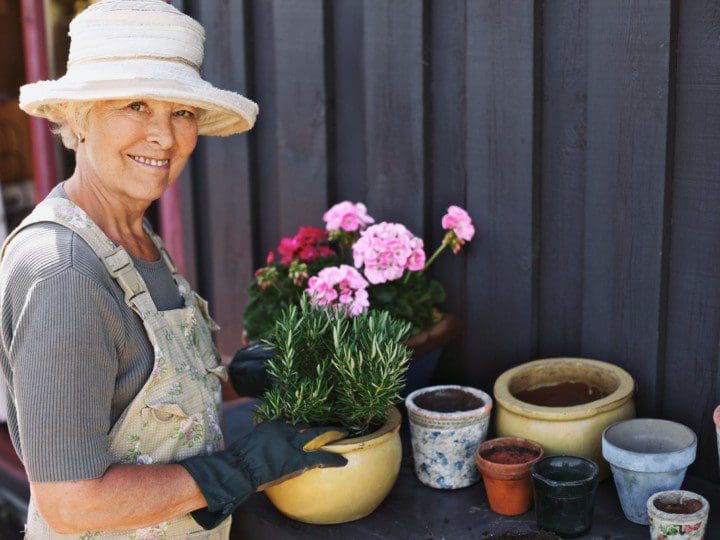The secret to Japan’s impressive life expectancy (currently the second highest in the world with females on average 88 years and 82 years for males) isn’t just down to their healthy diets, which consist of low red meat and high consumption of fish and plant foods, but something known as ikigai.
What is ikigai?
In Japanese, iki means ‘to live’ and gai means ‘reason.’
Ikigai roughly translates to ‘a reason for being’ or ‘that which makes life worth living’, and it’s a Japanese philosophy and reason for happiness and longevity. This ideology dates to the Hein period (A.D. 794 to 1185), but it’s only recently that its meaning is gaining attention from millions across the globe.
Ikigai is especially prominent in Okinawa, which has been nicknamed the ‘Land of Immortals’ because it has among the longest lifespans in the world.
And it’s this harnessing of ikigai that leads Japanese people over retirement age to find new purpose and joy in their later years.
A reason for being is the thing that gets you out of bed in the morning, whether it’s for work, or diving into hobbies and activities that fill you with joy. And connecting to your ikigai is felt to be the secret to living a long life full of meaning.
In Japanese culture, not keeping your mind and body active (which includes retiring) is seen as being negative for your health, as it separates you from your ikigai. In fact, a study from 2008 analysed data from more than 50,000 participants (ages 40 to 79) and discovered that those with ikigai in their lives had reduced risks of heart disease and lower mortality rates.
And when it comes to independent retirement living, ikigai is crucial. It allows the Japanese to keep doing what they love, what they’re good at, and contributing to society even after they’ve retired from the workplace.
How the Japanese embrace independent retirement living
In the west, it’s typical that we divide our adult life in two – our work life and our retirement life. But in Okinawa and other parts of Japan, there isn’t even a word for retirement. Instead, there is just ikigai. A reason to get out of bed every morning.
In western societies, we often think of retiring as the end of an important chapter in our lives. While this can be a positive thing many people look forward to, it can also be seen less favourably. It could imply that once you stop working, you’ll be looked upon as not having a purpose.
But in Japan, it couldn’t be more different.
When people in Japan reach their older years, they keep thoroughly engaged in society. They start enjoying activities and work that demand less responsibility, and fill them with joy and a fresh lease on life. Why? To keep their bodies and minds fully active and engaged to continue fueling them with ikigai and meaning.
The idea is not to do work that can bring stress or overwhelm, but to join in with tasks that bring joy and assist others. This way, there isn’t the typical ‘work hard followed by burnout’ that we so often see in the west, but instead, a life that is never rushed and full of purpose and happiness.
Japanese people believe that small joys collectively add to a fulfilling life, and as life changes, so can your purpose.
In short, embracing your ikigai allows you to remain active and add value and joy to your life, whatever your age. Whether it’s through volunteering, spending more time with friends and family, or discovering new hobbies that make you happy.
Find your ikigai
If you have been struggling to find meaning and fulfilment in your retirement years, then it’s time to find your ikigai. Not just to help you feel better about yourself, but to continue to live a long, healthy and full life.
The westernised version of ikigai identifies four key components:
- What you love
- What the world needs
- What you can get paid for
- What you’re good at
Think about what gives you a zest for life. What makes you happy? What could you help with? What are you good at? What (or who) do you value?
It can be anything from art or spending time with your grandchildren, to gardening or yoga with friends. What can keep you busily engaged every day and make your days feel like a joy rather than a chore?
Spending time with friends and creating strong social links with peers, thereby avoiding social isolation, is a wonderful way to feel motivated and confident, and help you lead a more active life.
And if that includes continuing with work in some way, then go for it. A national survey from 2018 found that 47.5% of people aged 70 or older continued to be active in either work, hobbies, or joining in with community activities.
There is no rule that says once you reach a certain age you have to stop working, especially if you still enjoy it.
By changing the idea of retirement as the end goal to discovering our ikigai, we can find greater enjoyment and purpose throughout our lives.
Discover retirement wellbeing at Santhem Residences
At Santhem Residences, you can truly discover ikigai. From relaxing in your luxurious suite to taking part in invigorating exercise classes, to joining friends on exciting excursions.
We’d love to tell you more about how independent retirement living at Santhem can be the start of your new fulfilling chapter.
Get in touch with our friendly team today, and we can answer any questions you might have.
